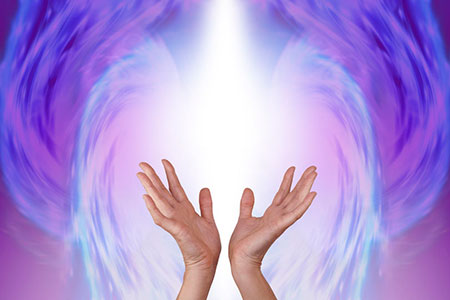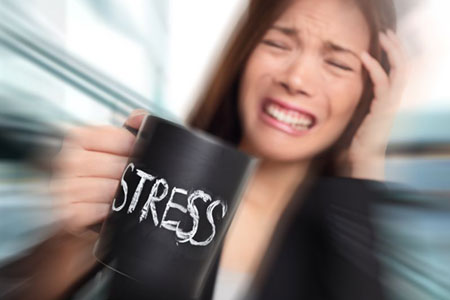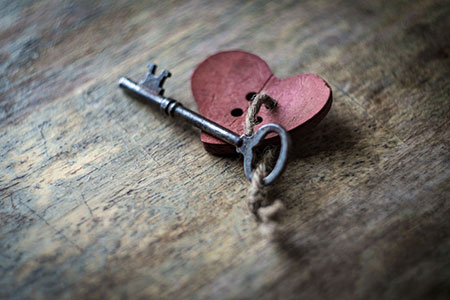Inviting The Comfort Of Angels
 Now, more than ever before in our lifetime, angels are here to support, guide and comfort us in these challenging times. Angels always show up during times of great calamity and crisis. Many angel sightings or experiences have been witnessed during traumatic periods throughout human history. It is important to remember that they are ever-present, and waiting to be of service, love and support.
Now, more than ever before in our lifetime, angels are here to support, guide and comfort us in these challenging times. Angels always show up during times of great calamity and crisis. Many angel sightings or experiences have been witnessed during traumatic periods throughout human history. It is important to remember that they are ever-present, and waiting to be of service, love and support.
Over the years, I have seen time and time again that some of the key primary purposes of the angels in our lives is to remind and reinforce for us that we are not alone; that we can and will overcome the challenges we face at the moment; and to link us back to the best part of our hearts, which is where our true strength lies. It is that part of us which they hold sacred for us.
The angels have known us since before we were born. They have been watching over us as we have gone through triumph and tragedy, ever-vigilant, always supportive, they are loving and guiding us with signs and feelings towards our hearts desire. Through it all they remain unwavering in their faith in our ability to rise to the full expression of our hearts in all of life’s circumstances.
They are friend to all, regardless of our diverse beliefs and sometimes misguided dogmas. They truly are here to serve all of humankind. More often than not they are subtle in their presence, and their voices come through in feelings of comfort, love, and peace. They also guide us with a deep sense of knowing that a course of action we are about to embark on is either advantageous, or dangerous. They are never judge nor jury; they are always our advocates without question.
Resentment And The Empath
 Do you have a tendency to re-experience past injustices — real or perceived – while holding on to those old feelings of anger connected to them? If so, it means you are harboring some form of resentment. Empaths are especially prone to resentment, simply because we tap into emotions, past, present, and future, much more than most people.
Do you have a tendency to re-experience past injustices — real or perceived – while holding on to those old feelings of anger connected to them? If so, it means you are harboring some form of resentment. Empaths are especially prone to resentment, simply because we tap into emotions, past, present, and future, much more than most people.
Resentment forms when we become angry towards a person or situation, and then hold onto that anger. Some people harbor their resentments for many years, refusing to let go of it. Over time, whatever caused the original anger and initially led to the resentment, may be forgotten, but the resentment remains. It is like a still-smoldering ember left after the flames of a fire have subsided. The fire no longer rages, but the ember remains smoldering, and all it takes is a spark to set that fire raging again.
For the empath this rekindled ‘fire’ may be triggered every time they enter a new relationship. No harm has been done, yet, but the empath may be so on guard, and overly vigilant to any slight that resembles their past hurt, that it easily sets off another destructive blaze. They expect the worst and try to protect themselves against it, but in the process the thing they fear the most may re-emerge from the past, unhealed resentment.
For many empaths, lack of boundaries also lead to dashed expectations, typically followed by resentment. As an empath, you feel the heart of the person, and know that there is love. Once connected into the, “I know they love me,” their bad behavior can be overlooked. Continue reading
Aromatherapy For Stress Relief
 I have been using essential oils for many years. In the 1990s, I made it a point to study them and become certified. At that time aromatherapy was already very popular in Europe, where it was seen as a viable adjunct therapy. Science has gained more insight on the impact of scent on the brain, our emotions and our well-being.
I have been using essential oils for many years. In the 1990s, I made it a point to study them and become certified. At that time aromatherapy was already very popular in Europe, where it was seen as a viable adjunct therapy. Science has gained more insight on the impact of scent on the brain, our emotions and our well-being.
Stress originates from the limbic system, and our sense of smell is the only one that is linked to this part of the brain. Before we might even become aware of the effects an essential oil or fragrance may have on us, the molecules from the essential oils we smell are already at work on our limbic lobe.
Successful real estate agents know the power of smell, and often suggest you bake some chocolate chip cookies, or brew some fresh coffee before an open house, or simply simmer cloves, cinnamon, and orange peels in a small pot of boiling water, to evoke a homey, welcoming smell.
Scents also trigger memories. A scent from your childhood, that created a warm, secure, peaceful feeling, is something you might want to re-create with essential oils.
When the mind relaxes, the body follows. We all experience stress at times, and although essential oils cannot magically make a situation disappear, one may benefit from the relaxation effects that aromatherapy offers.
Give Your Nervous System A Break
 Given the fast pace of today’s world, the expectations of others, as well as the pressure we place on ourselves, giving our nervous system a break, and understanding the ways to support and strengthen this system, is physically, emotionally and spiritually important.
Given the fast pace of today’s world, the expectations of others, as well as the pressure we place on ourselves, giving our nervous system a break, and understanding the ways to support and strengthen this system, is physically, emotionally and spiritually important.
Stress is something we all experience – some more than others. Those of us who are empathic, psychic, or highly sensitive, can experience stress more intensely with more profound consequences.
The stress that empaths, psychics and sensitives experience may be tied to that of another person, or situation, as well as their own stress. This ability to experience the emotions, thoughts and feelings of others can create a rebound effect of high stress.
Racing heart, anxiety, quickening of breathing, tensing of muscles, sweating, feeling faint or nauseous, are all signs of a nervous system in flight mode. Add in the compounded impact of experiencing this in another person, on top of yourself, and your nervous system is off and running, literally.
The body’s ‘fight or flight response’ is controlled by the sympathetic nervous system, which is one part of the autonomic nervous system. The other part is the parasympathetic nervous system, which works to relax and slow down the body’s response.
The sympathetic system acts like an accelerator, to ‘rev up’ our body and make us run, to remove us from danger. The parasympathetic system acts like the ‘brake,’ slowing us down when danger isn’t present.
The Key Is In Your Hands
 I received a lovely necklace as a gift recently, with a beautiful center stone and a small ‘skeleton key’ at the bottom. A skeleton key is a type of master key in which the serrated edge has been removed so that it can open numerous locks .I’ve seen these keys before, and remembered vaguely the symbolism, but I decided to refresh my knowledge by researching further the significance of this symbol.
I received a lovely necklace as a gift recently, with a beautiful center stone and a small ‘skeleton key’ at the bottom. A skeleton key is a type of master key in which the serrated edge has been removed so that it can open numerous locks .I’ve seen these keys before, and remembered vaguely the symbolism, but I decided to refresh my knowledge by researching further the significance of this symbol.
Katie Pifer writes that keys have had a variety of spiritual symbolisms attached to it “for as long as man has had locks. They are connected with gateways and portals, doorways to the unknown, knowledge, mysteries, powers, initiations, new ways, forbidden things and answers to curious questions.”
Keys symbolize our ability to gain access to those things of either a material or spiritual nature that are of the greatest importance to us. The key is an object symbolic not only of opening doors to new paths that align with our desires, but also closing and locking doors to those things that we wish to leave behind.
Skeleton keys are considered to be a more powerful symbol, since they can open many different locks. Thus, they have been perceived to be the powerful ‘keys to the Kingdom,’ or the key to that someone special’s heart, and so on.
Skeleton Keys are traditionally also worn as powerful amulets. It is thought to be good luck to touch a key when you are entering a challenging or dangerous situation, because keys are believed to keep you safe. They are also symbolic of transformation, freedom and liberation.


